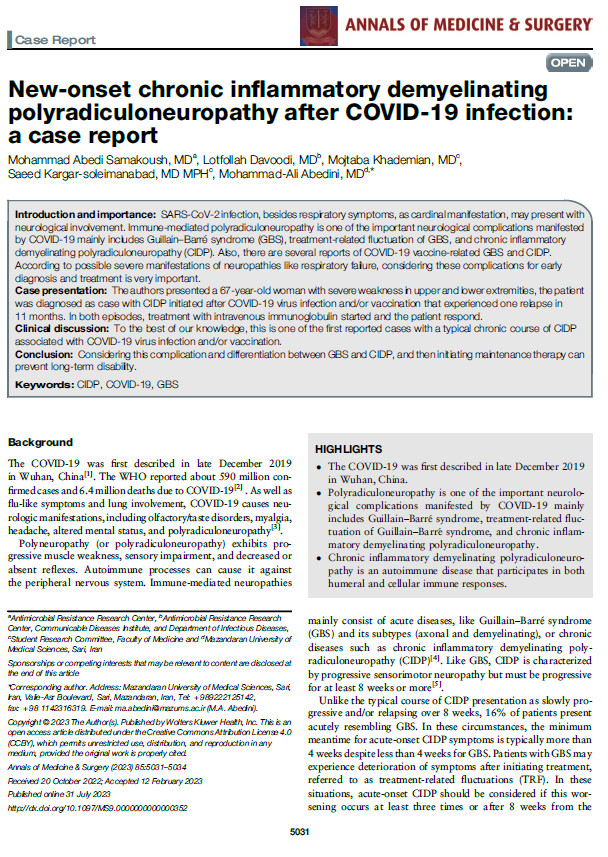New-onset chronic inflammatory demyelinating polyradiculoneuropathy after COVID-19 infection: a case report
October 2023
Abstract
Introduction and importance:
SARS-CoV-2 infection, besides respiratory symptoms, as cardinal manifestation, may present with neurological involvement. Immune-mediated polyradiculoneuropathy is one of the important neurological complications manifested by COVID-19 mainly includes Guillain–Barré syndrome (GBS), treatment-related fluctuation of GBS, and chronic inflammatory demyelinating polyradiculoneuropathy (CIDP). Also, there are several reports of COVID-19 vaccine-related GBS and CIDP. According to possible severe manifestations of neuropathies like respiratory failure, considering these complications for early diagnosis and treatment is very important.
Case presentation:
The authors presented a 67-year-old woman with severe weakness in upper and lower extremities, the patient was diagnosed as case with CIDP initiated after COVID-19 virus infection and/or vaccination that experienced one relapse in 11 months. In both episodes, treatment with intravenous immunoglobulin started and the patient respond.
Clinical discussion:
To the best of our knowledge, this is one of the first reported cases with a typical chronic course of CIDP associated with COVID-19 virus infection and/or vaccination.
Conclusion:
Considering this complication and differentiation between GBS and CIDP, and then initiating maintenance therapy can prevent long-term disability.

